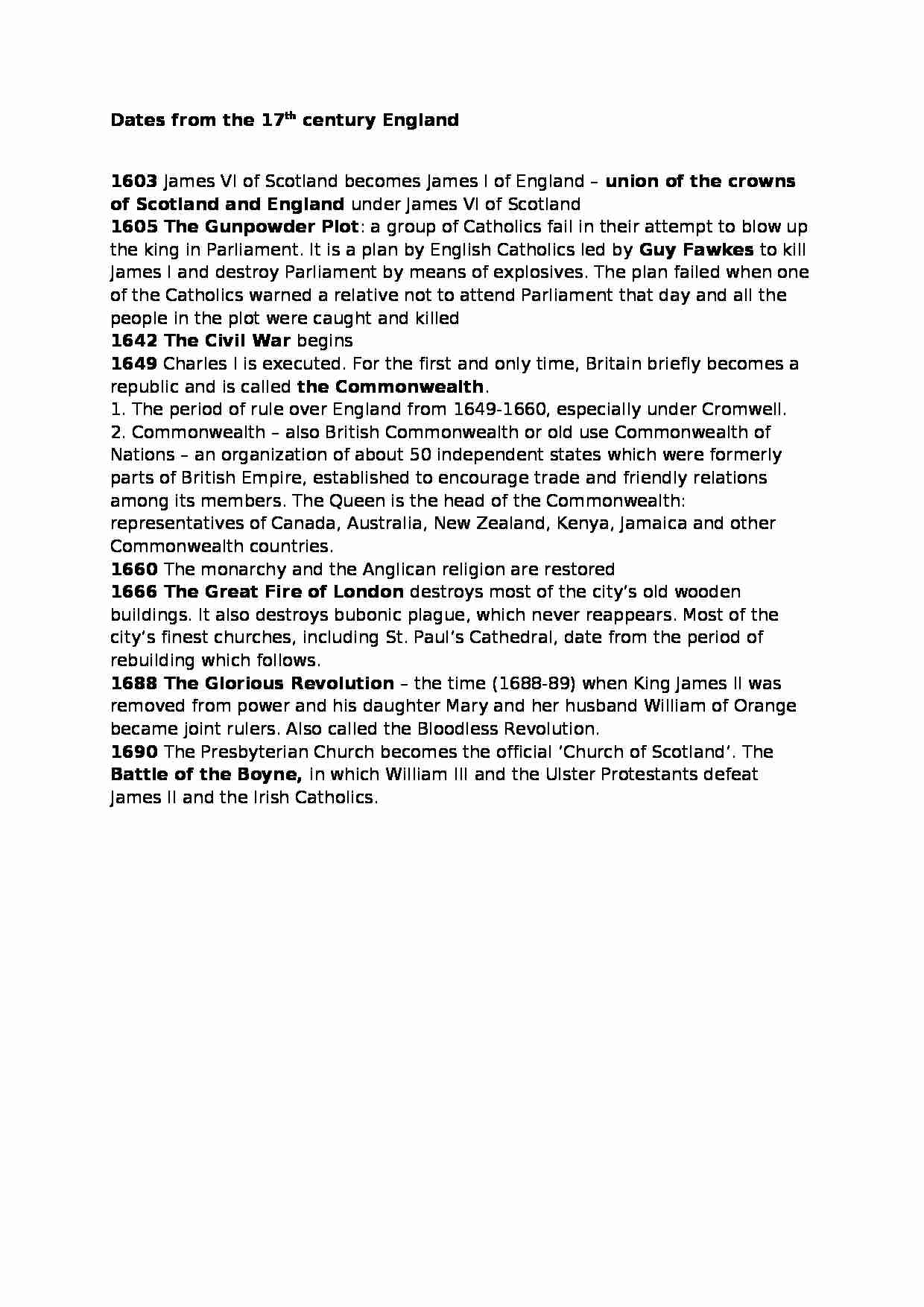
Dates from the 17th century England
1603 James VI of Scotland becomes James I of England - union of the crowns of Scotland and England under James VI of Scotland 1605 The Gunpowder Plot: a group of Catholics fail in their attempt to blow up the king in Parliament. It is a plan by English Catholics led by Guy Fawkes to kill James I and destroy Parliament by means of explosives. The plan failed when one of the Catholics warned a relative not to attend Parliament that day and all the people in the plot were caught and killed 1642 The Civil War begins 1649 Charles I is executed. For the first and only time, Britain briefly becomes a republic and is called the Commonwealth. 1. The period of rule over England from 1649-1660, especially under Cromwell. 2. Commonwealth - also British Commonwealth or old use Commonwealth of Nations - an organization of about 50 independent states which were formerly parts of British Empire, established to encourage trade and friendly relations among its members. The Queen is the head of the Commonwealth: representatives of Canada, Australia, New Zealand, Kenya, Jamaica and other Commonwealth countries. 1660 The monarchy and the Anglican religion are restored 1666 The Great Fire of London destroys most of the city's old wooden buildings. It also destroys bubonic plague, which never reappears. Most of the city's finest churches, including St. Paul's Cathedral, date from the period of rebuilding which follows. 1688 The Glorious Revolution - the time (1688-89) when King James II was removed from power and his daughter Mary and her husband William of Orange became joint rulers. Also called the Bloodless Revolution. 1690 The Presbyterian Church becomes the official `Church of Scotland'. The Battle of the Boyne, in which William III and the Ulster Protestants defeat James II and the Irish Catholics.
... zobacz całą notatkę



Komentarze użytkowników (0)